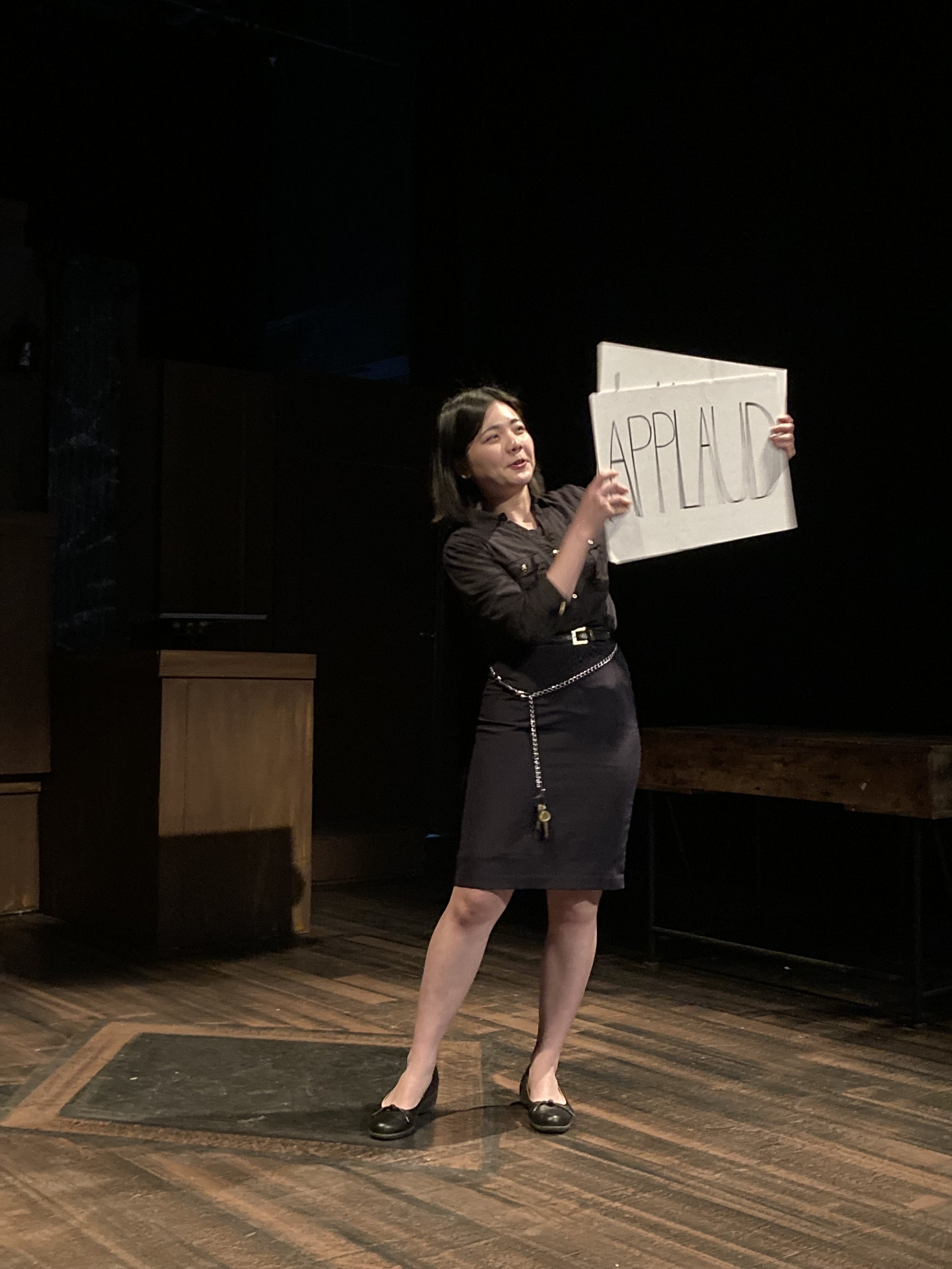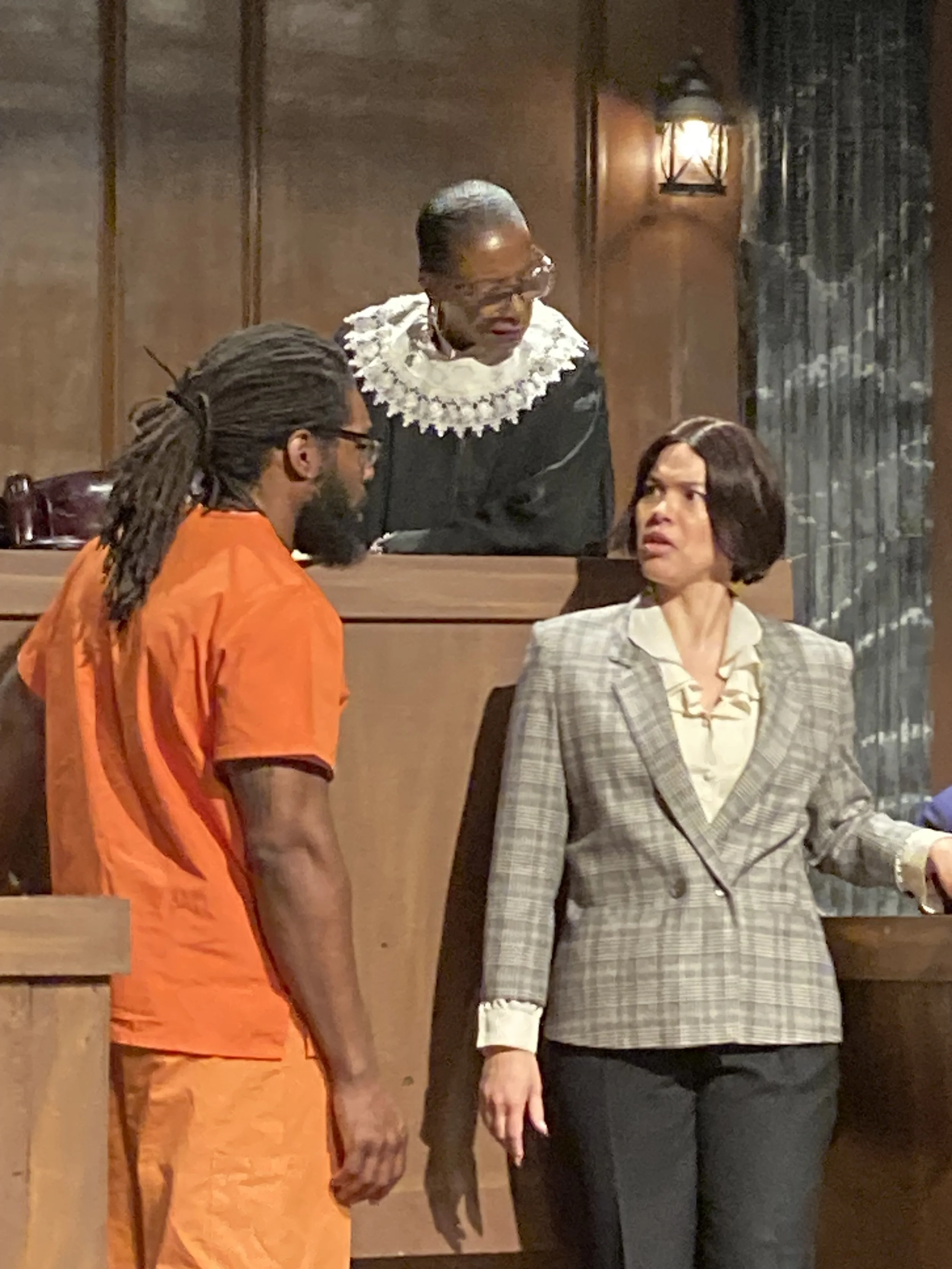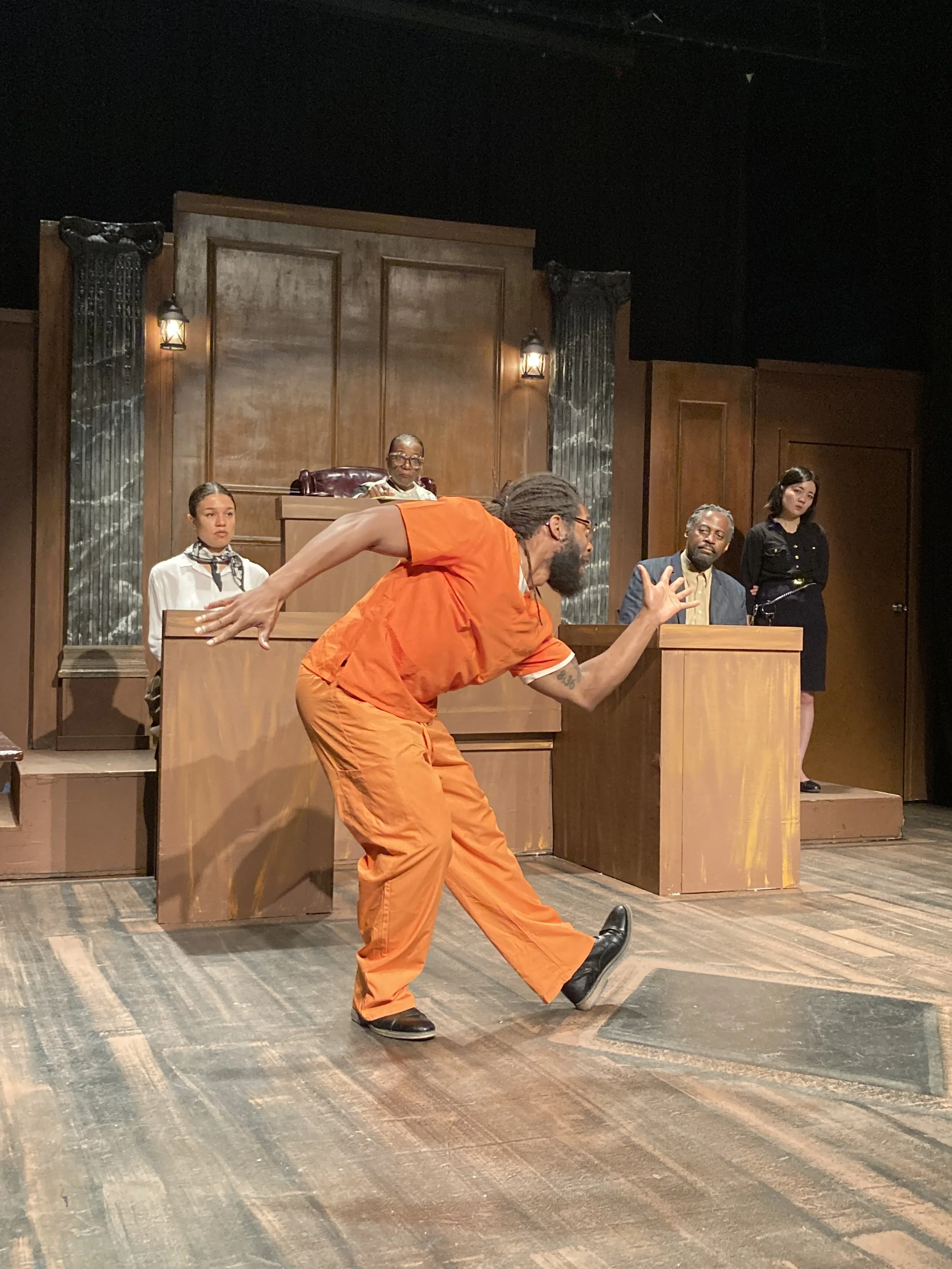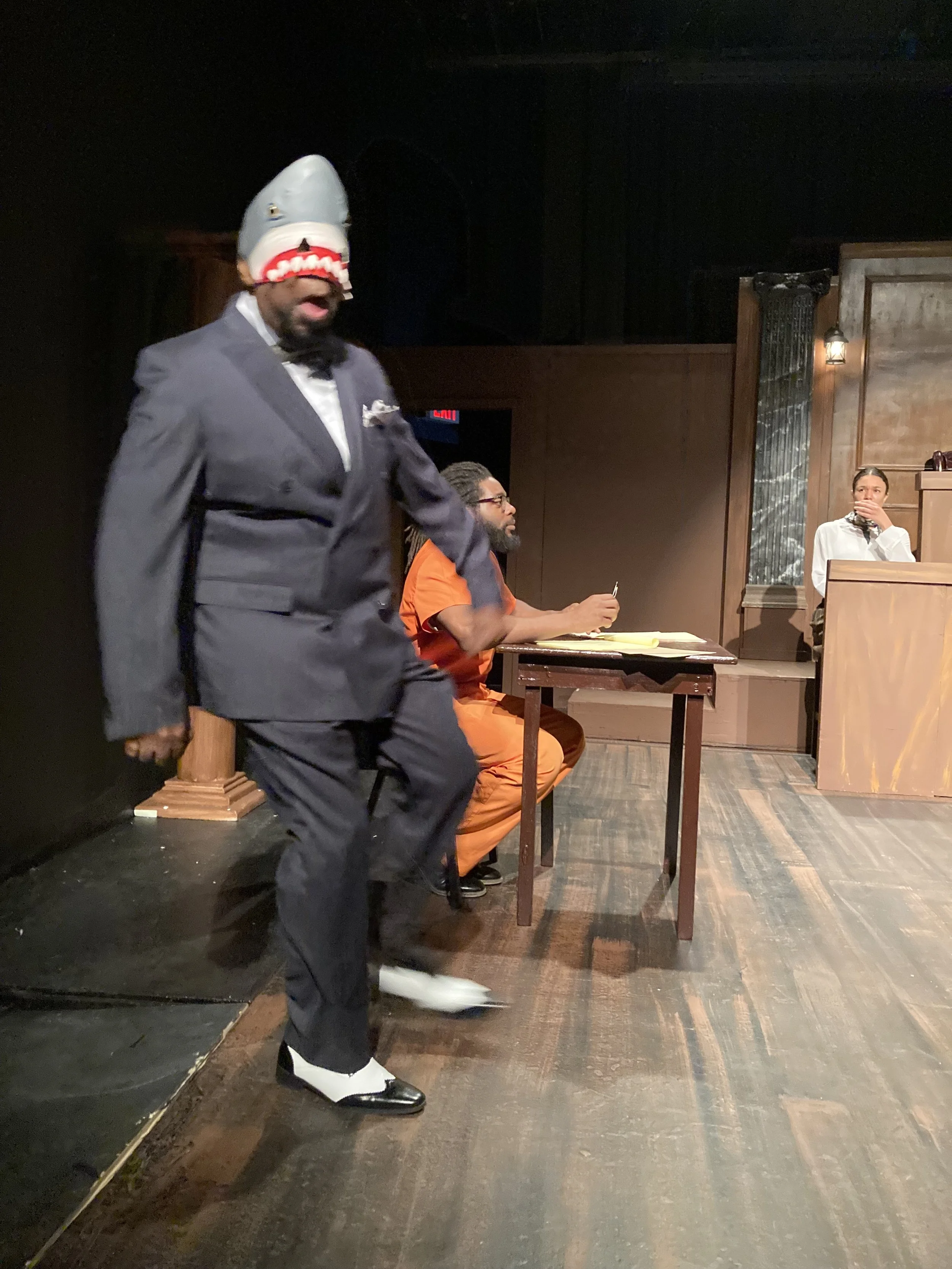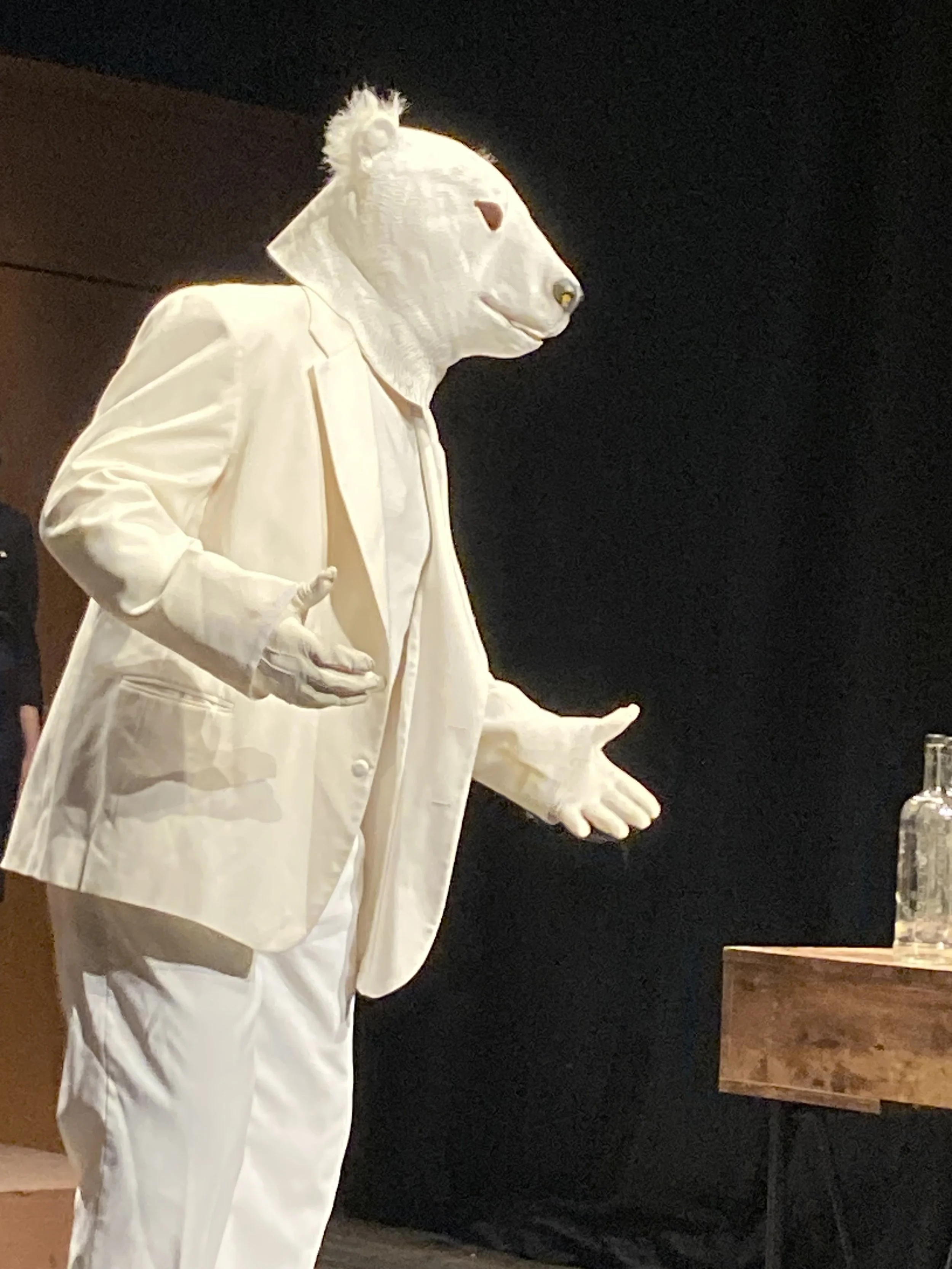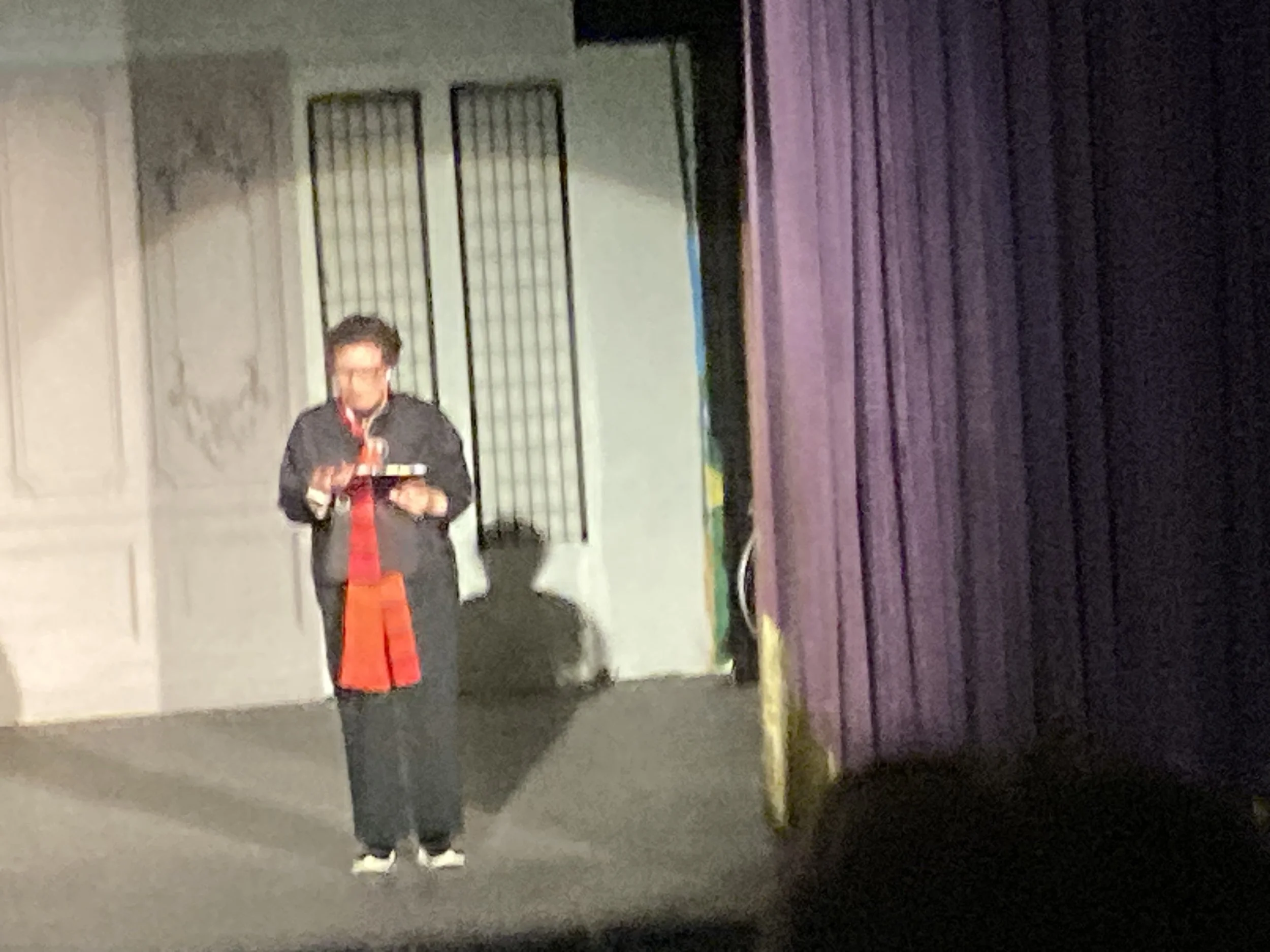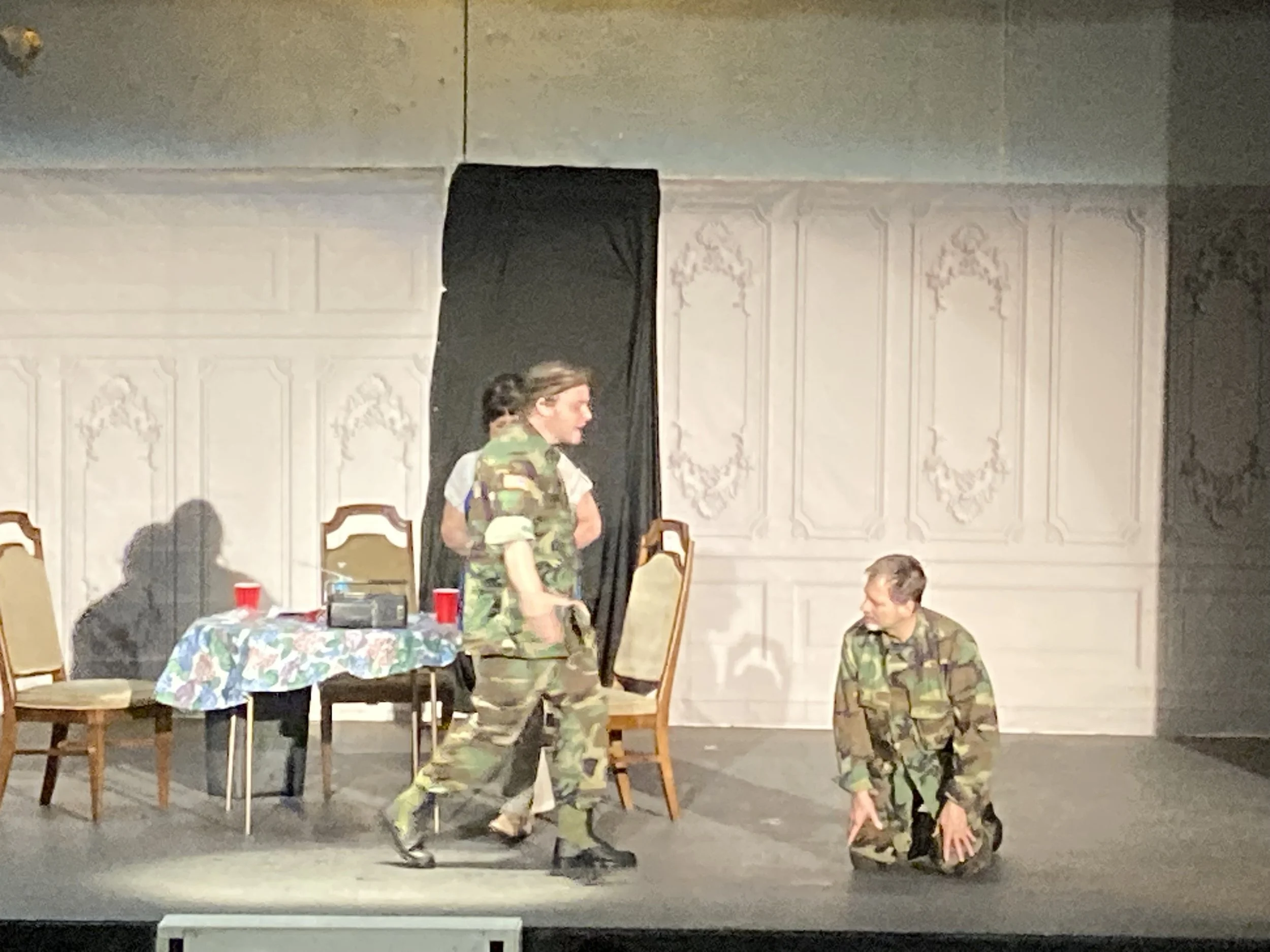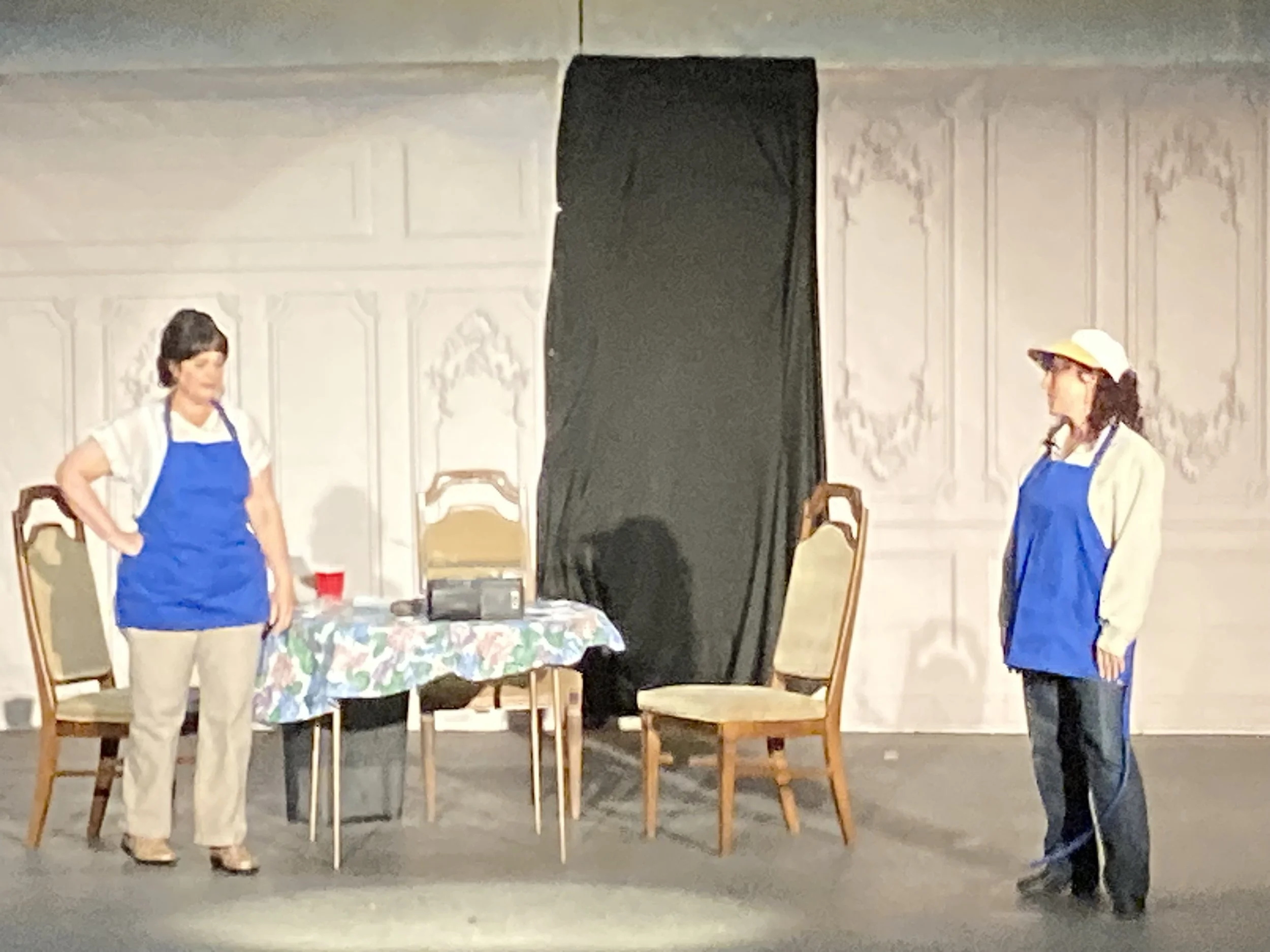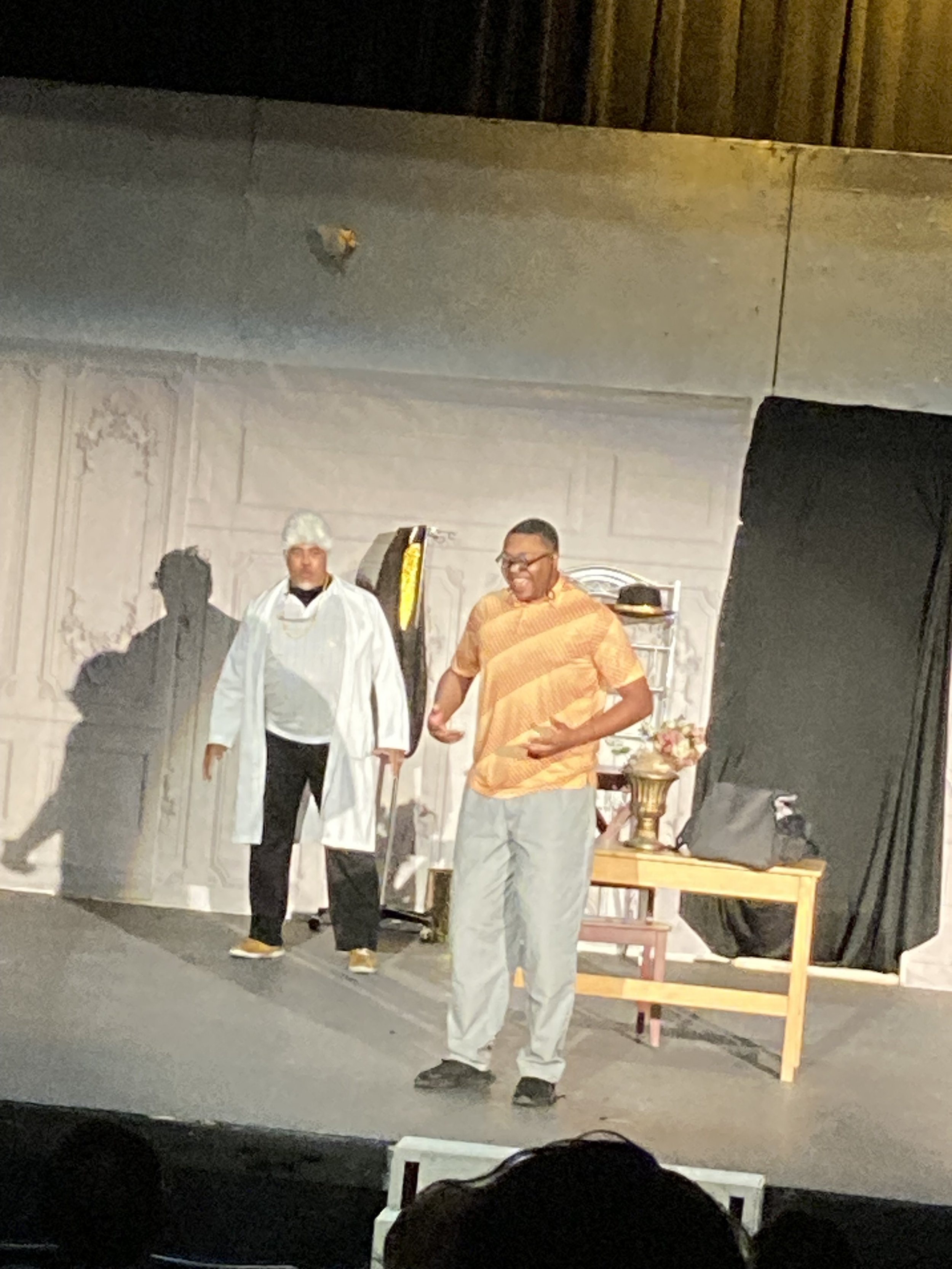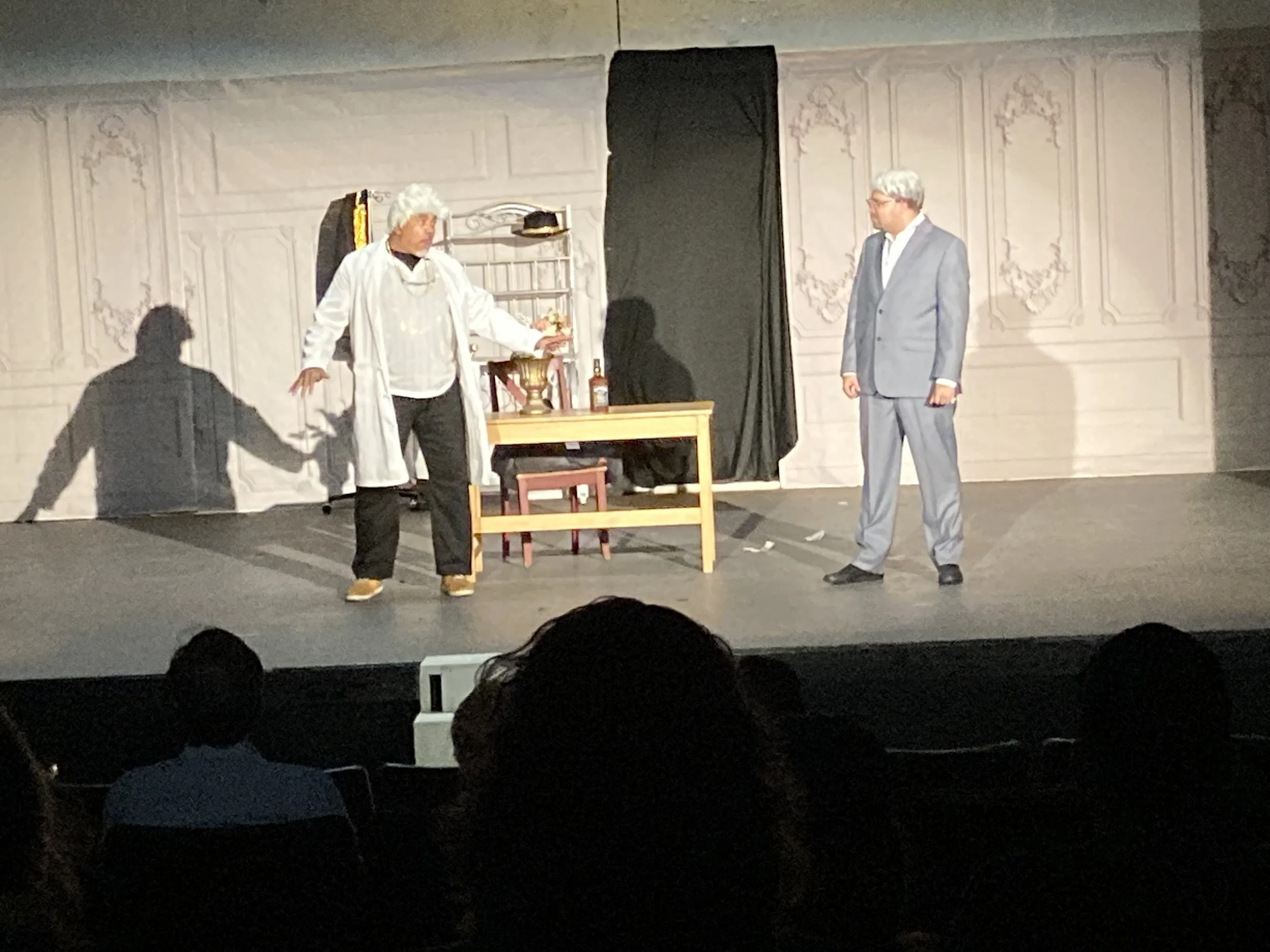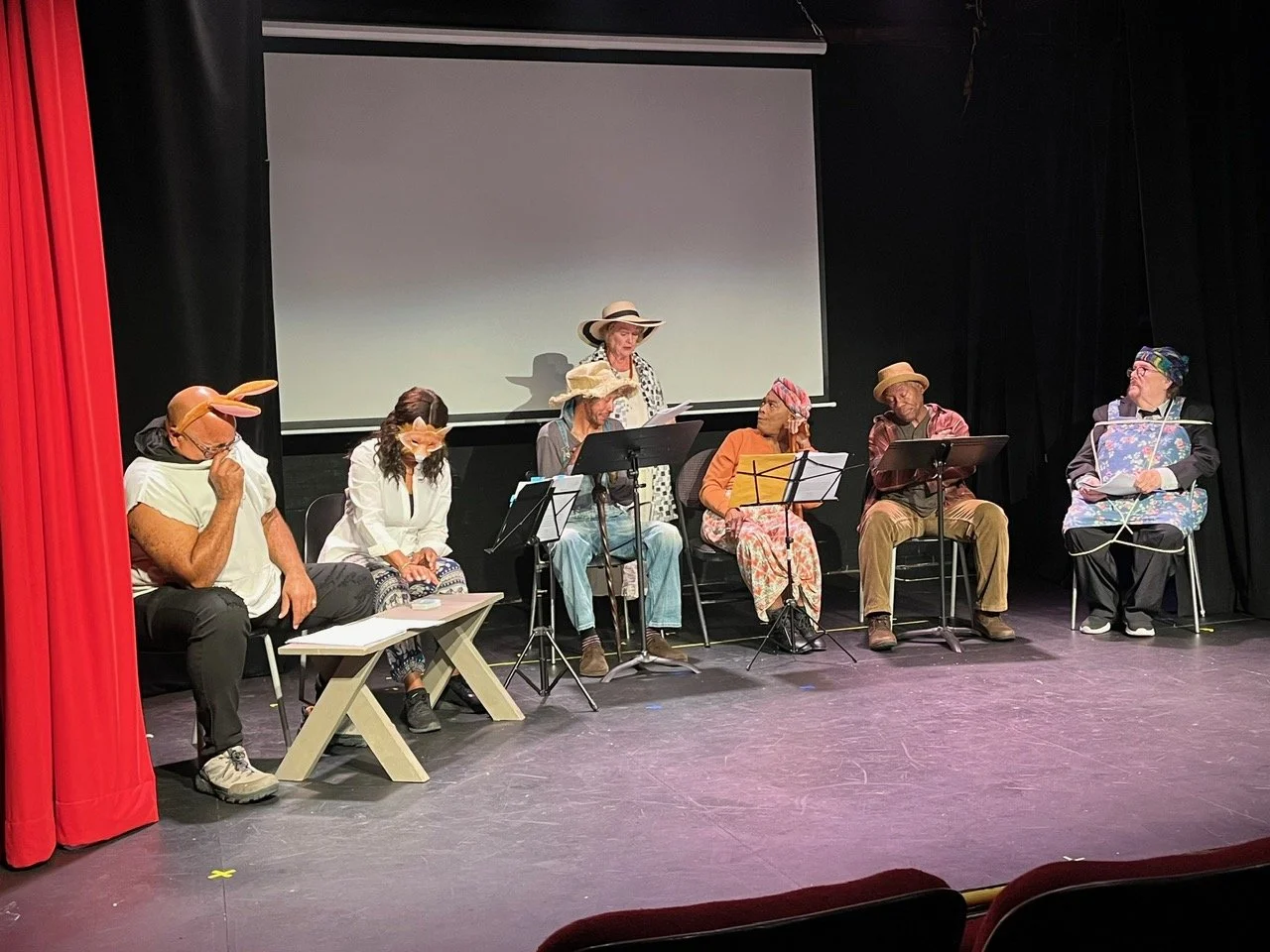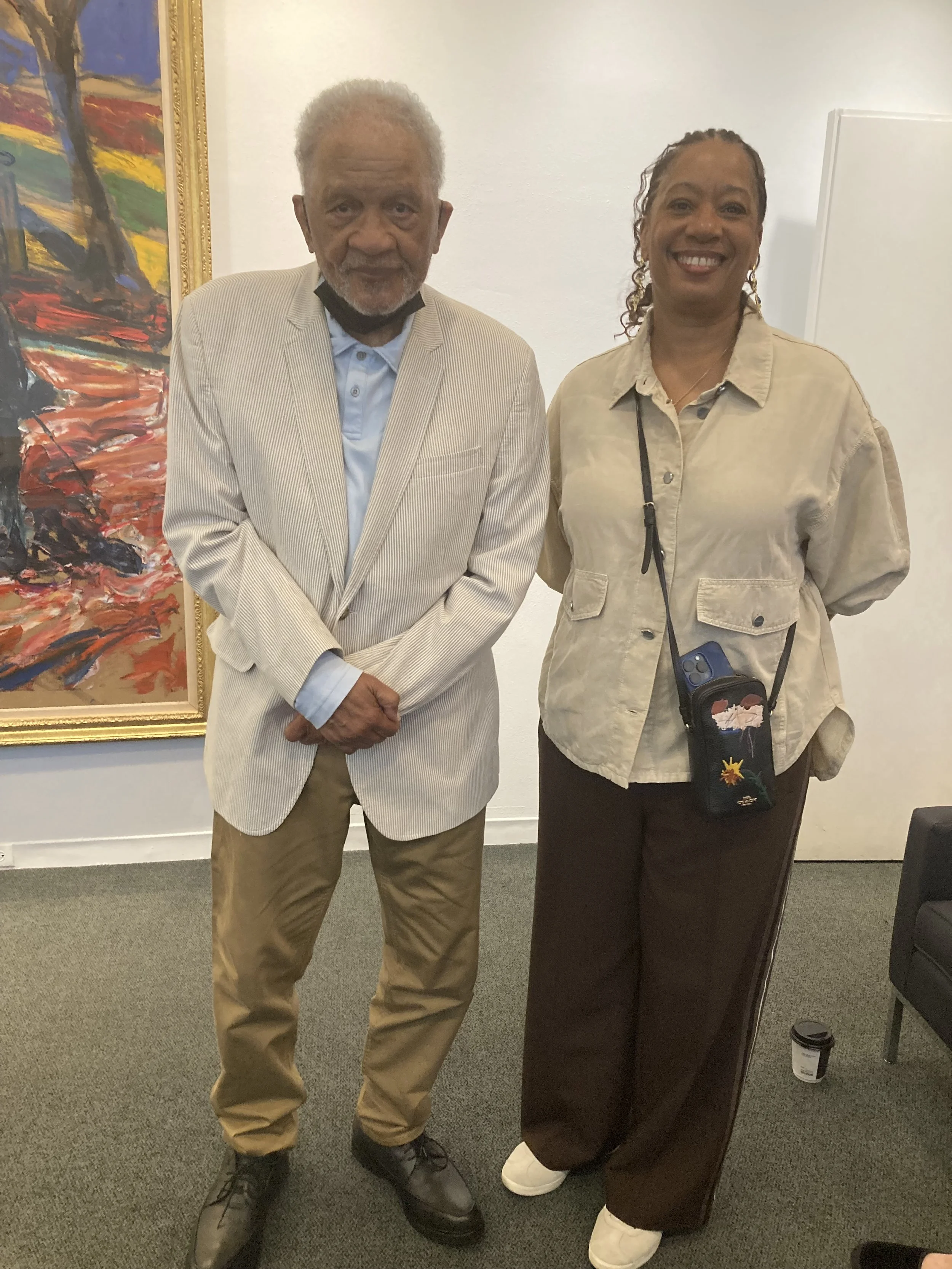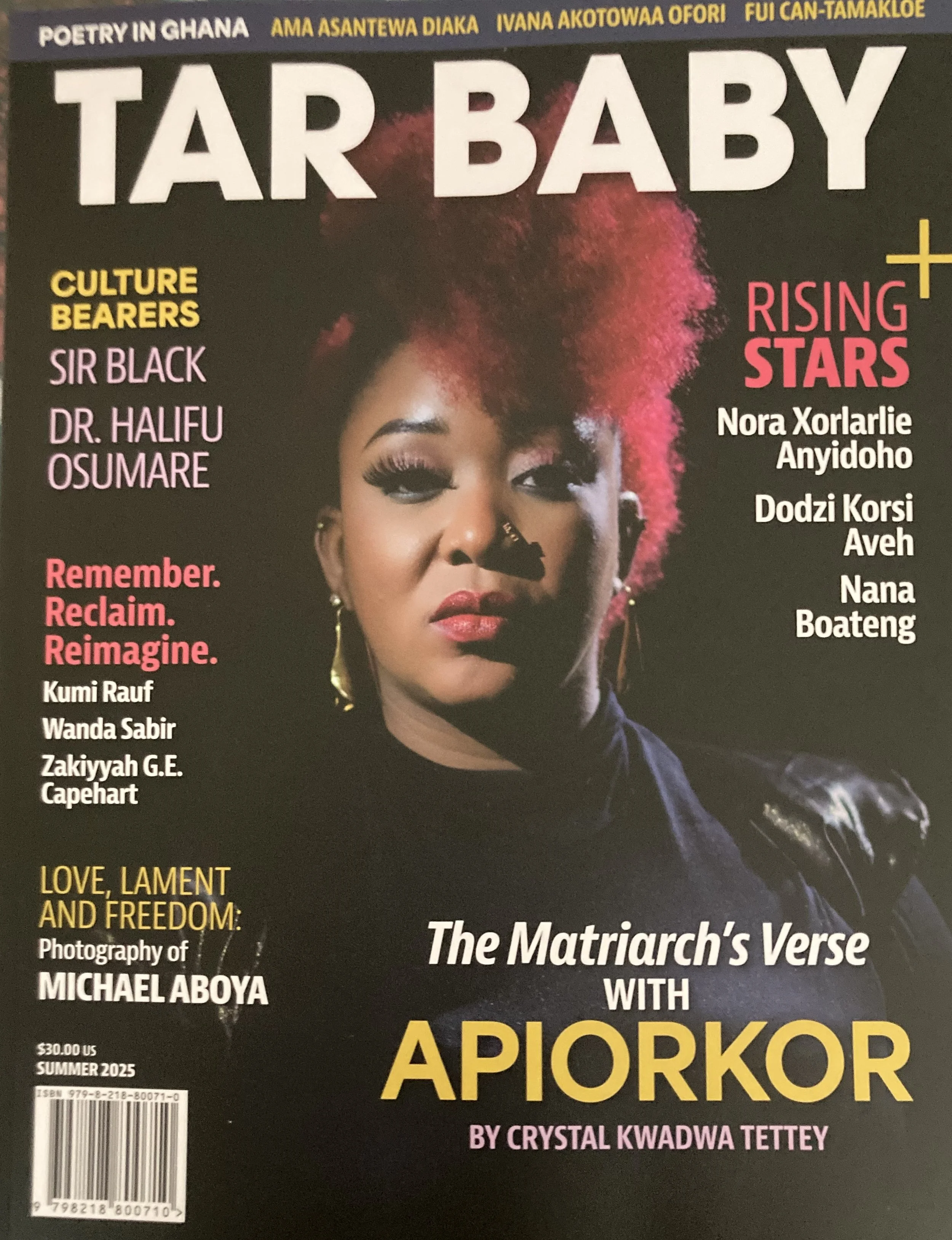About Us
Whether it be celebrities like Terry McMillan, winner of The American Book Award, or Oscar winner Lou Gossett or newcomers like Brynn Saito or Alex Maynard, since 1990, Konch has been publishing American and international writers of the highest merit. Konch is sustained by Ishmael Reed, Tennessee Reed and our readers, granting us an independence that those zines with corporate sponsorship lack. Contributors to Konch have submitted work that is innovative and serene, but we reserve the right to be rowdy. The Jim Crow Media and literary Scene Have Failed Us.
Editorial
EDITORIAL, Fall 2025
From the publisher
Notes from the Fourth Reich
Earlier this Fall, the Hirshhorn Museum invited me to Washington to participate in a panel discussion about the work of Jean-Michel Basquiat. Afterward, we had dinner at a private club where Woodrow Wilson was a member. During the panel, I had the opportunity to name all those who exploited Basquiat, an act that was denied me when my play, “The Slave Who Loved Caviar,” was denied a second New York run due to threatened lawsuits. One of the panelists was Basquiat’s sister, Lisane. We took a photo together...We are honored to include work by Sheree Renee Thomas, one of the country's leading science fiction and fantasy writers. ...Tennessee Reed has overcome painful, debilitating back conditions. Still, her exercise regimen has helped her manage her illnesses. We continue to print excerpts from Vitin A. Cruz’s remarkable memoir, “Behind the Gray Rhino Part VI.”...Dr. Michael LeNoir responds to the Trump administration’s “Race Science quackery.” One of the country’s leading pediatricians, check out his team’s statement based in science in “The New England Journal of Medicine” *...We include some strong poetry from Emil Guillermo and Kevin Powell. Guillermo writes a tender tribute to his father, while Powell, in his powerful work, shows how the hurts inflicted upon us when we were young haunt us for the rest of our lives,when I read Zarrin Ferdowski’s line, “ I know inside each one of these flowers there must be the name of God” that she was Emily Dickenson’s poetic sister...Also included are photos from four of my plays that were staged this year in New York, Chattanooga, Tennessee, Berkeley, and, most recently, in San Francisco.
Finally, we invited some leading writers to respond to Donald Trump’s Fascist regime...Three full productions of plays were performed in New York City, Chattanooga, Tennessee, and Berkeley, California. A staged reading of a new play, “The Amanuensis,” just ended in San Francisco, directed by Carla Blank.** We will be leaving shortly to cast a staged reading of the play in New York. We've included photos of scenes from the plays, and the staged reading....
We've taken six and a half months off for a good cause: helping publisher Ford Morrison launch Tar Baby. a new magazine funded by the Toni Morrison Foundation. I’m the Editor-in-Chief of the magazine, and Tennessee is the Managing Editor of a magazine that the great detective novelist T.J. English calls “aesthetically beautiful.” Three-time U.S. Poet Laureate Joy Harjo says “There’s Nothing Like It.”
We do not plan to abandon “Konch,” which has been on the run since 1991. This issue shows that we are still in the business of creating content that raises eyebrows and ignites discussion as the dying Empire turns to fools for guidance. Now that millions of voters, including Blacks and Browns, have handed us a fascist regime, the presence of “Konch” is even more critical.
Ishmael Reed
*Publisherhttps://pubmed.ncbi.nlm.nih.gov/33406325/
** Carla Blank’s most recent book is “A Jew in Ramallah and Other Essays (Baraka Books, 2024)”We’ve taken nine months off for a good cause. Helping Ford Morrison launch Tar Baby. a new magazine funded by the Toni Morrison Foundation. I’m Editor-in-Chief and Tennessee is Managing Editor of a magazine which the great detective novelist T. J. English calls “aesthetically beautiful.”
Contributors
Sheree Renée Thomas is an award-winning author, poet, and editor whose work is inspired by myth and folklore, natural science, and Mississippi Delta conjure. She was honored with the Octavia E. Butler Award and is the author of the collections Mojorhythm (Third Man Books, 2025), Nine Bar Blues: Stories from an Ancient Future (Third Man Books, 2020), Sleeping Under the Tree of Life (Aqueduct Press, 2016), and Shotgun Lullabies: Stories & Poems (Aqueduct Press, 2011). She edited the groundbreaking, 3-time World Fantasy Award-winning anthologies, Dark Matter: A Century of Speculative Fiction from the Africa Diaspora, that first introduced W.E.B. Du Boris’s work as science fiction to readers, Dark Matter: Reading the Bones, and Africa Risen: A New Era of Speculative Fiction. She is the Editor of the Magazine of Fantasy & Science Fiction and Associate Editor of Obsidian. She lives in Memphis, Tennessee, between a mighty river and a pyramid.
Tennessee Reed is the author of seven poetry collections, a memoir and a novel. She is the chairperson of PEN Oakland and the managing editor of Konch Magazine and Tar Baby Quarterly.
Vitin A. Cruz is a native of San Francisco who graduated from high school in Puerto Rico. He’s been writing since a young age.
Dr. Michael LeNoir is a practicing Board Certified Pediatrician, Allergist and Immunologist. Associate Clinical Professor and Past President of the National Medical Association.
Emil Amok Guillermo, the first Filipino Asian American to host NPR’s “All Things Considered” is an award-winning journalist, commentator and standup comedian. He serves as a poet laureate in San Joaquin County, Calif.
Last child of a large family of eight, Zarrin Ferdowsi had the stamina and determination to stay alive despite all the odds. Growing up in the family that love of books and learning was the flame of their life, finished her father's book collections plus the entire fiction section of local library, by age twelve. Always thought one day she'll have a novel of her own shelved in that library. Though not wanting, the wheel of life took her from the east and south to the west and North. Here after 35 years, is her first print of any sort, about a dentist's mind.
Kevin Powell is a GRAMMY-nominated poet, humanitarian, author of 16 books, filmmaker, and writer of a forthcoming biography of Tupac Shakur. He lives and thrives in Brooklyn New York. Follow Kevin on all social media platforms by typing poet kevin powell.
Playthell Benjamin is an Independent Public Intellectual. He has been an activist in the black liberation movement, a founding member of the W.E.B. Dubois Department at the University of Massachusetts Amherst, during 1969the first degree granting Black Studies Department in the world. This department acquired Dr. DuBois' vast papers and letters with the backing of the University, and they are now deposited in the impressive DuBois Library at U-Mass. He taught African and Afro-American history. He went on to a career as an award-winning journalist. His articles on politics, culture and sport have been published in the Manchester Guardian, Sunday Times of London, Village Voice, Freedomways, Emerge, et al.
Herb Boyd is a prolific author/writer/activist. Currently in production is the biography of noted musician Max Roach (University of Chicago Press) and Epic Harlem, A History of the Legendary Community (Fordham University Press). For more than forty years his articles have appeared in the Amsterdam News.
Melba Joyce Boyd is a native Detroiter and an award-winning poet, scholar, editor and filmmaker. The author of thirteen books, nine of which are poetry. She is the Poet Laureate of Michigan, a Kresge Eminent Artist, and a Distinguished Professor Emerita in the Department of African American Studies at Wayne State University.
Charlie R. Braxton is a poet, playwright, and cultural critic who writes about music and politics. He is the author of three volumes of verse: Ascension From The Ashes (Blackwood Press,1990), Cinders Rekindled (Jawara Press, 2012), and Embers Among The Ashes: Poems In A Haiku Manner (Jawara Press, 2018). His latest volume of verse is entitled And The Earth Cried Blood (Jawara Press,2025).
Jeffrey St. Clair is editor of CounterPunch. His latest book is An Orgy of the Thieves: Neoliberalism and Its Discontents.
Octogenarian Jack Foley is a California poet who has published thirteen books of poetry, three books of critical essays, a book of stories, and a two-volume “chronoencyclopedia” of California poetry, “Visions & Affiliations: California Poetry from 1940 to 2005.” He became known through his multi-voiced performances with his late wife, Adelle, and has presented poetry on Berkeley radio station KPFA since 1988. His most recent poetry books, all published in 2024, are “Collisions” (new poetry), “Ekphrazz” (ekphrastic poetry, a collaboration with collagist Mark Fisher) and “Telling It Slant” (new poetry). Lawrence Ferlinghetti: “Jack Foley is doing great things in articulating the poetic consciousness of San Francisco.”
Reporting and writing for over half a century, Linda Gómez spent twp decades as a national and foreign correspondent for LIFE. She's published in scores of magazines and newspapers, including National Geographic, Smithsonian, Audubon, Hola, ABC, and Custos.
Philip Lewis Henderson, American Book Award winner and author of Life of Death and Nate, is currently living just outside Berlin and has recently completed the second novel in a series about black, lower-middle-class life, spanning several decades.
Rashidah Ismaili is an internationally known and published writer of poetry and short fiction. Her works are widely anthologised. She was a member of UMBRA, Black Arts Movement, Calabashe Poets, OWWA, Organisation of Women Writers of Africa. A retired academic and founding faculty of Wilkes University, PA, Creative Writing; MA/MFA programme.
Ron Jacobs, writer and anti-fascist agitator.
Robert Koss lives in Los Angeles.
Tony Medina is the author/editor of seventeen books for adults and young readers.
Honored as one of The Frederick Douglass 200—recognizing individuals who carry forward Douglass’s enduring legacy—Nancy Mercado’s most recent distinction is her inclusion in a landmark anthology forthcoming from the Instituto de Cultura Puertorriqueña (Institute of Puerto Rican Culture) in Puerto Rico.
D. Scot Miller is a writer/editor at The East Bay Express, Co-Host of The Doom Loop Dispatch pod-cast, Columnist-In-Residence at San Francisco Museum of Modern Art, Advisory Board Member of Nocturnes Journal of Literary Arts, and regular contributor to several websites and magazines. Miller is also the founder of The Afrosurreal Arts Movement through his publication of The Afrosurreal Manifesto in The San Francisco Bay Guardian, May 20, 2009.
E. Ethelbert Miller is a literary activist and author of two memoirs and several poetry collections. He hosts the WPFW morning radio show On the Margin with E. Ethelbert Miller and hosts and produces The Scholars on UDC-TV which received a 2020 Telly Award. Miller is Associate Editor and a columnist for The American Book Review. He was given a 2020 congressional award from Congressman Jamie Raskin in recognition of his literary activism, awarded the 2022 Howard Zinn Lifetime Achievement Award by the Peace and Justice Studies Association, and named a 2023 Grammy Nominee Finalist for Best Spoken Word Poetry Album. Miller’s latest books are How I Found Love Behind the Catcher's Mask, published by City Point Press and We Eclipse Into The Other Side, collaborated with Miho Kinnas, published by Pinyon Publishing.
Roxanne Dunbar-Ortiz is Professor Emeritus in History and author of 14 books, including An Indigenous Peoples’ of the United States,” Loaded: A Disarming History of the Second Amendment, and Not ‘A Nation of Immigrants: Settler Colonialism, White Supremacy, and a History of Erasure and Exclusion. Her forthcoming book is “There is a Meanness in This World”[1] Essays on White Nationalism
Richard Prince is a veteran journalist who writes "Journal-isms," an online column on diversity issues in the news business. He is also CEO of the parent company, Journal-isms Inc.
Roddey Reid, author of Confronting Political Intimidation and Public Bullying: A Handbook for the Trump Era and Beyond (2025) and host of the blog, "UnSafe Thoughts: On the Fluidity of Politics in Dangerous Times” (roddeyreid.squarespace.com)
The Town Crier,” Raymond Nat Turner, is Artistic Director of the stalwart JazzPoetry Ensemble UpSurge!NYC and Poet-in-Residence at Black Agenda Report and KPFA Radio's "Talkies."
MSW is a poet & educator living in the SF Bay Area.
Julia Wright is the elder daughter of the late writer Richard Wright. She is the author of For The Baby Ancestors in Gaza - and other Poems for Palestine soon to be published by Fighting Words.
The cast of crew of Ishmael Reed’s newest play “The Amanuensis,” which premiered at Theater 33 in San Francisco from October 16-19, 2025. Photo by Kathy Guillermo.


